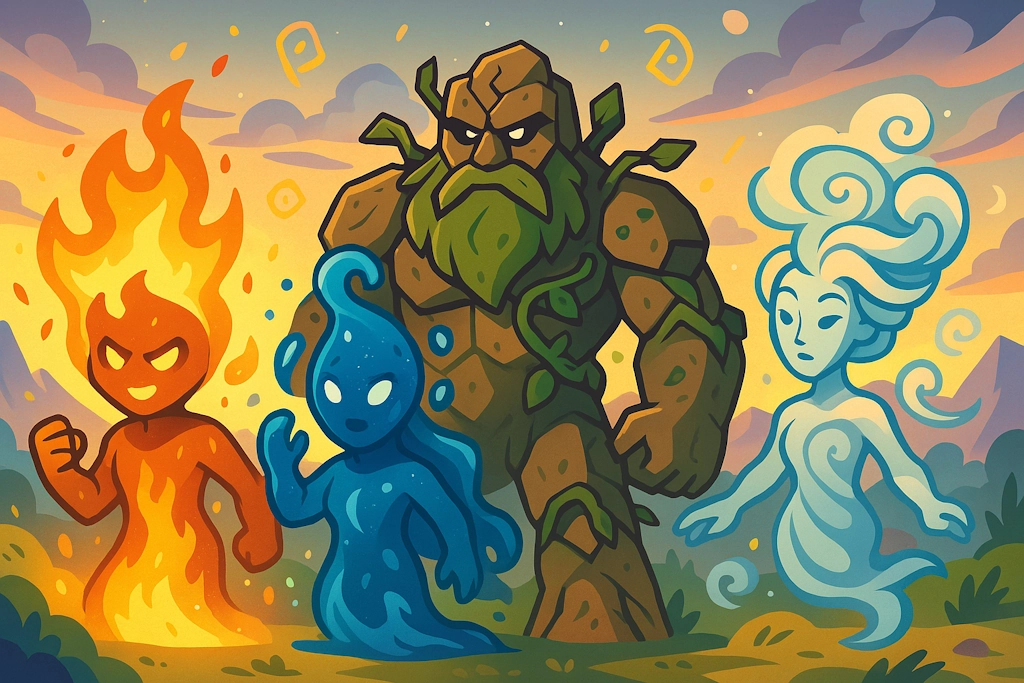🌱Elemental Names(Life)
Generate powerful elemental names for fire, water, earth, air spirits and magical elemental beings.
Choose your style:
Many options available. Selected: Life

Elemental Names
Generate powerful elemental names for fire, water, earth, air spirits and magical elemental beings.
Lightning Elemental NamesBlood Elemental NamesFire Elemental NamesWater Elemental NamesAir Elemental NamesEarth Elemental NamesIce Elemental NamesShadow Elemental NamesLight Elemental NamesMagic Elemental NamesLife Elemental NamesDeath Elemental NamesTime Elemental Names
Example Elemental Names
Get inspired by these sample results
- Voltara the Lightning Weaver
- Sanguinus the Blood Sage
- Infernus the Flame Lord
- Aquanis the Tide Speaker
- Zephyr the Wind Dancer
- Terrane the Earth Shaper
- Glacius the Frost King
- Umbris the Shadow Walker
- Solaris the Light Bringer
- Arcanis the Spell Weaver
- Vitalis the Life Giver
- Mortis the Death Keeper
- Chronos the Time Weaver

